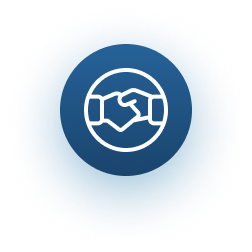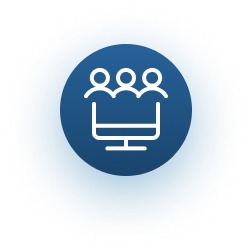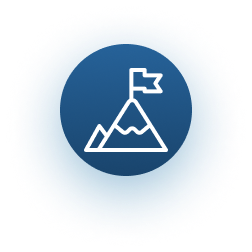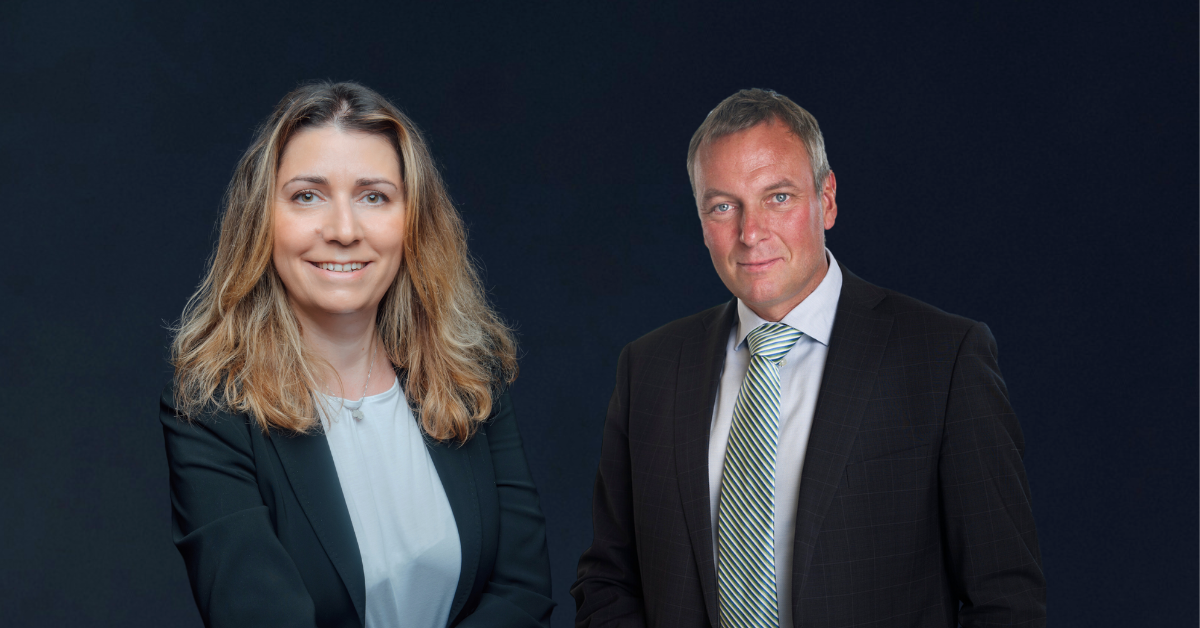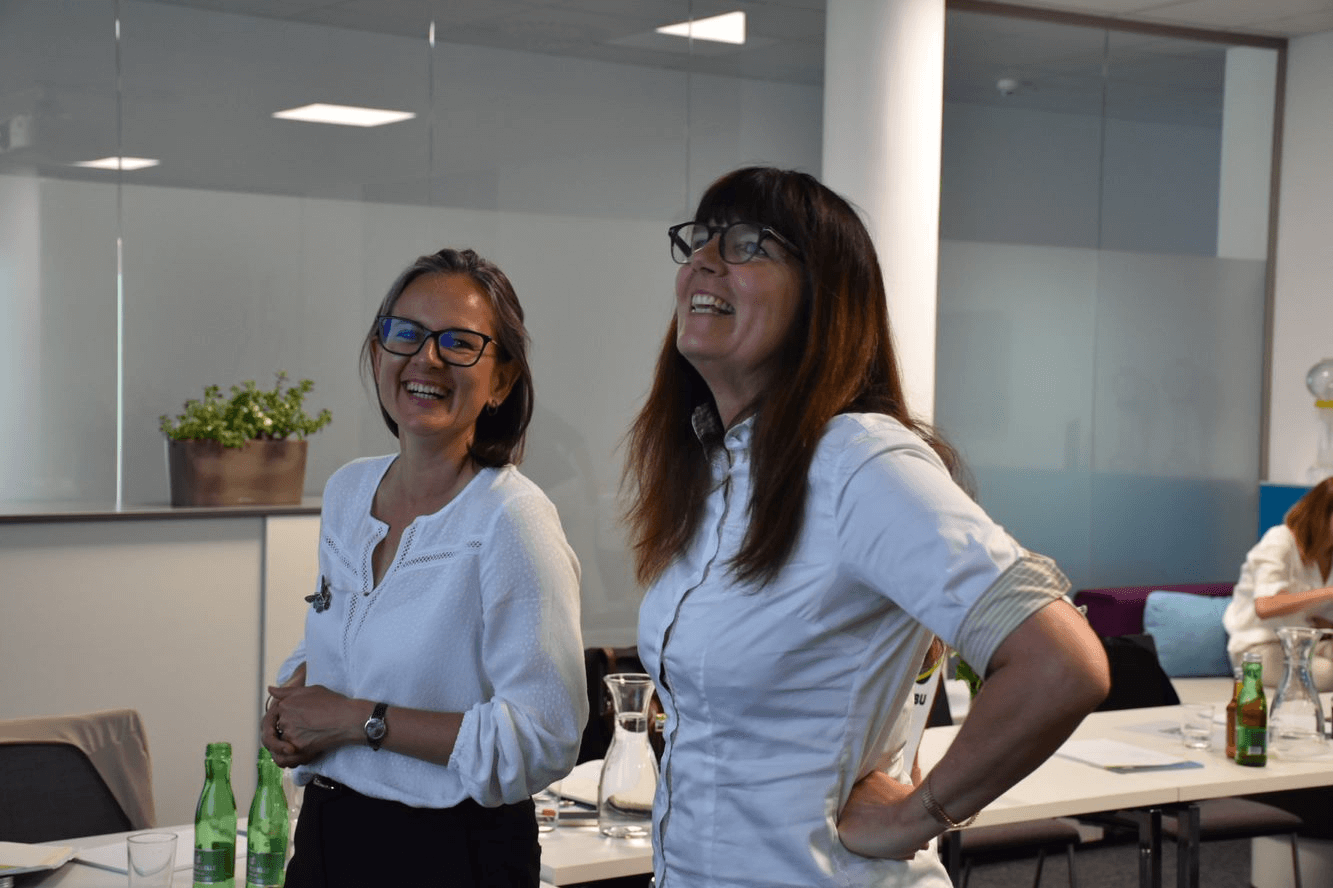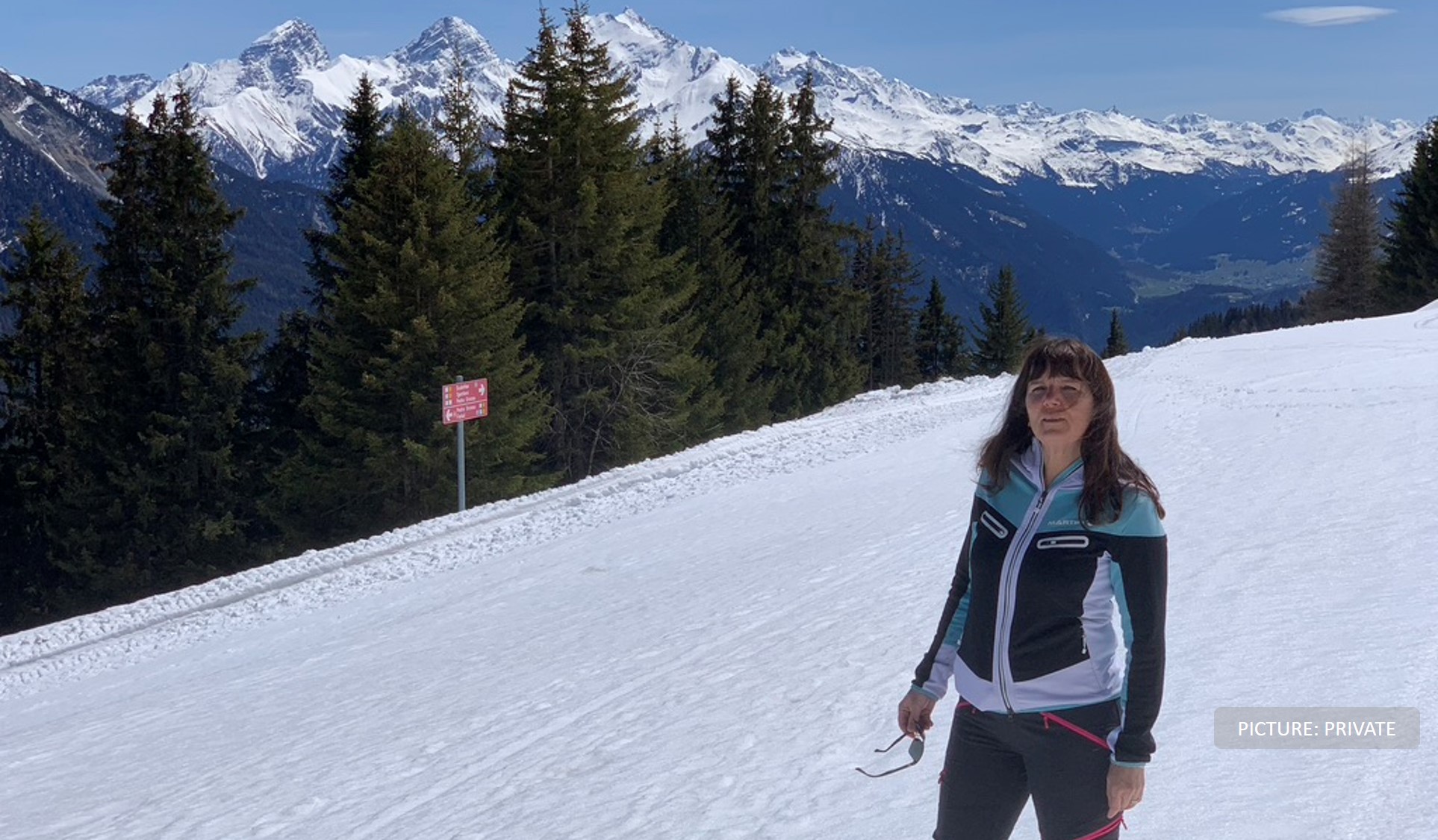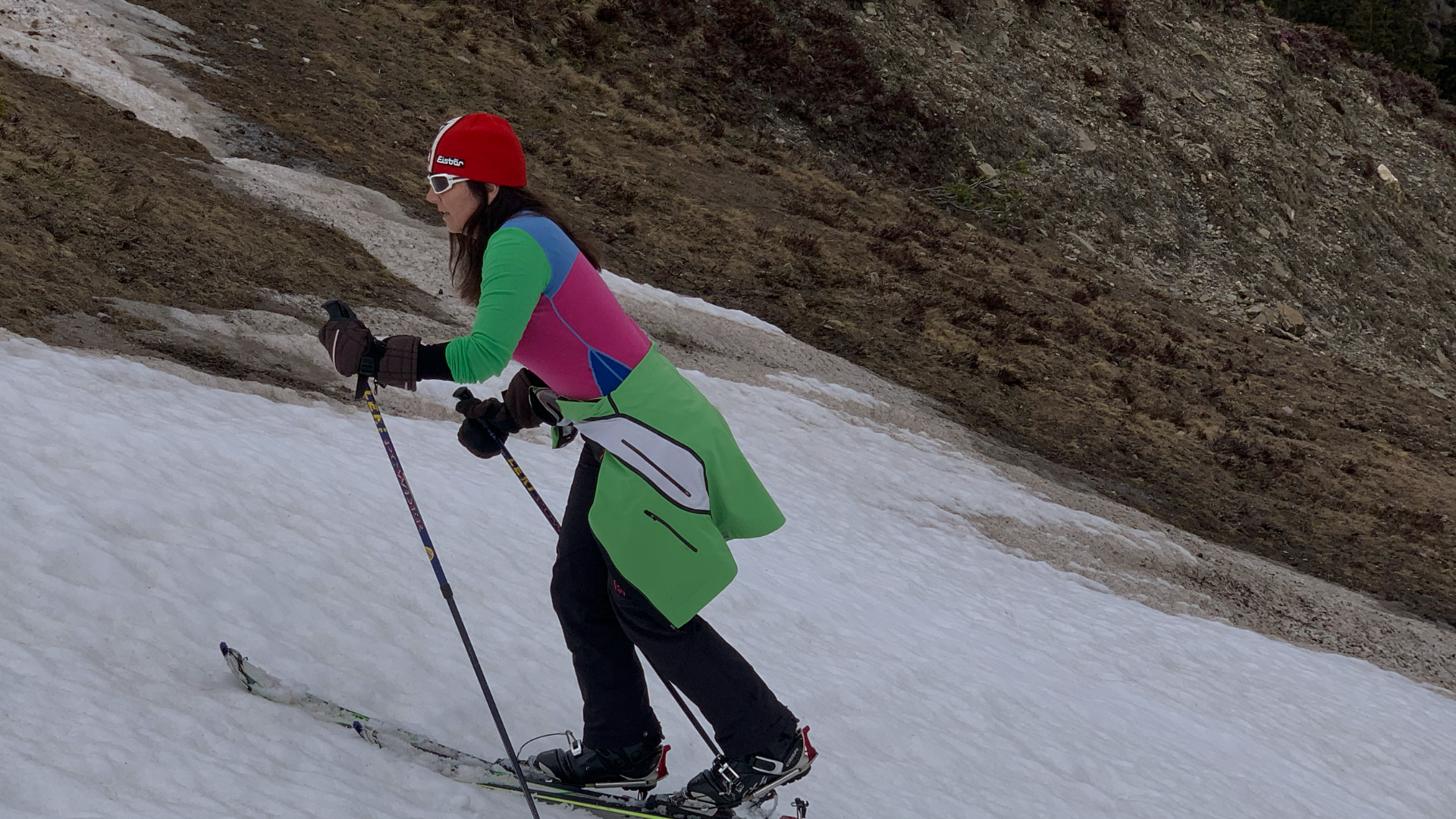- Empowering Leadership and Cross-Cultural Mentorship: A SheSkillz Global Journey Between a Mentee and Her Mentor.
Meet Deia Markova (French/Bulgarian) and Rolf Thorsen (Norwegian), two professionals, whose career exemplify resilience, expertise, and leadership. Mentee and mentor in our SheSkillz Global mentoring program, they are in this conversation sharing their insights on mentoring, leadership, education, parenting, and the symbiotic nature of learning from one another. Join us as we delve into their professional journeys and the wisdom they impart on achieving professional success with purpose and determination.
By: Guro Askheim Johnsen, Founder, and CEO SheSkillz Global.
Deia's journey commenced in finance, where she cultivated her expertise in mergers and acquisitions before transitioning to commodities financing. Driven by a passion for sustainability, she navigated her career path to become Head of Trade & Sustainable Commodity Finance, Switzerland - Member of the Executive Committee at the bank, Societe Generale Switzerland.
Combining his education with being one of the world’s best rowers, Rolf´s career is rooted in construction engineering. He served in different executive and CEO roles, managing projects in different countries next to Norway ranging from hydropower plants in Latin America to docks in Germany. With a wealth of experience, he transitioned into property development for many years within NCC, eventually founding Polaris Eiendom together with some partners, where he now serves as CEO.
Defining Good Leadership: Perspectives from Deia and Rolf
Deia and Rolf's views and insights are shaped by their diverse experiences and perspectives. As they engage in dialogue within the Sheskillz Global mentoring program, their reflections shed light on the multifaceted nature of effective leadership.
Deia initiates the discussion by emphasising the pivotal role of courage in leadership. For her, a good leader dares to envision bold possibilities and inspires others to join the journey. Central is the willingness to take accountability for decisions made along the way. Deia's definition underscores the importance of visionary leadership and bravery in navigating uncharted territories. Rolf continues by underlining that the essence of good leadership lies in setting ambitious yet attainable goals and empowering others to realise their full potential. Crucially, this entails active listening, clear communication, and diligent follow-up—a holistic approach that fosters a culture of growth and excellence. But, as a former elite athlete and Olympian, he introduces a nuanced perspective, drawing parallels between leadership and the realm of athletics. Rolf challenges the notion that top athletes can seamlessly transition into leadership roles, highlighting the fundamental distinction between individual performance and the orchestration of collective success. Their exchange encapsulates the essence of good leadership—a dynamic interplay of vision, courage, empathy, and empowerment.
Rolf continues: I think many companies and organisations have too low ambitions. Guro : Regarding setting ambitious goals that are possible to reach, do you think that helped you having the background as a former athlete, Rolf? Rolf: I think having high ambitions helps, and of course, having high ambitions for yourself is one thing. Having high ambitions for an organisation or for a company is a little more difficult. You need to bring people on that journey.
Deia initiates the discussion by emphasising the pivotal role of courage in leadership. For her, a good leader dares to envision bold possibilities and inspires others to join the journey. Central is the willingness to take accountability for decisions made along the way. Deia's definition underscores the importance of visionary leadership and bravery in navigating uncharted territories. Rolf continues by underlining that the essence of good leadership lies in setting ambitious yet attainable goals and empowering others to realise their full potential. Crucially, this entails active listening, clear communication, and diligent follow-up—a holistic approach that fosters a culture of growth and excellence. But, as a former elite athlete and Olympian, he introduces a nuanced perspective, drawing parallels between leadership and the realm of athletics. Rolf challenges the notion that top athletes can seamlessly transition into leadership roles, highlighting the fundamental distinction between individual performance and the orchestration of collective success. Their exchange encapsulates the essence of good leadership—a dynamic interplay of vision, courage, empathy, and empowerment.
Rolf continues: I think many companies and organisations have too low ambitions. Guro : Regarding setting ambitious goals that are possible to reach, do you think that helped you having the background as a former athlete, Rolf? Rolf: I think having high ambitions helps, and of course, having high ambitions for yourself is one thing. Having high ambitions for an organisation or for a company is a little more difficult. You need to bring people on that journey.
What Factors Have Contributed to Your Success?
Deia: Reflecting on my journey, ambition emerges as a key driving force. It's often said that having big dreams is crucial, but equally important is the relentless hard work needed to turn those dreams into reality. While we often credit our supporters and networks for our achievements, I've come to realise that it's the dedication and focus on our ambitions that lay the foundation for success. During my discussions with Rolf, we explored the significance of pursuing goals that truly resonate with our desires..
Deia continues: Aligning our actions with our aspirations not only fuels us with positive energy but also propels us to push our limits without feeling drained. Whenever faced with career choices, I've always trusted my gut—if it doesn't feel right, I don't pursue it. And looking back, I see that those decisions have shaped my path for the better. Furthermore, remaining open to unexpected opportunities has been instrumental. While it's essential to have a plan, being flexible and receptive to new possibilities can lead to unforeseen avenues of growth. Rolf's advice to listen to our instincts and discern whether an opportunity feels right resonates deeply with me.

However, in today's discourse, there's a narrative that suggests the next generation prioritises work-life balance over hard work. While I respect differing viewpoints, I firmly believe that dedication and effort are indispensable ingredients for success. As I often tell others, if you don't invest in yourself, you can't expect others to invest in you.
Rolf echoes this sentiment, emphasising the importance of finding fulfilment in our work. He suggests that when our profession aligns with our interests, it becomes more than just a job—it becomes a source of intrinsic motivation. In this way, work and personal life intertwine in a harmonious cycle, fostering overall happiness and satisfaction.
Deia: In essence, our success stems from a blend of ambition, hard work, intuition, and alignment with our passions. By embracing these principles, we not only achieve professional success but also cultivate a fulfilling and balanced life."
Deia continues: Aligning our actions with our aspirations not only fuels us with positive energy but also propels us to push our limits without feeling drained. Whenever faced with career choices, I've always trusted my gut—if it doesn't feel right, I don't pursue it. And looking back, I see that those decisions have shaped my path for the better. Furthermore, remaining open to unexpected opportunities has been instrumental. While it's essential to have a plan, being flexible and receptive to new possibilities can lead to unforeseen avenues of growth. Rolf's advice to listen to our instincts and discern whether an opportunity feels right resonates deeply with me.

Private photo - Deia Markova
However, in today's discourse, there's a narrative that suggests the next generation prioritises work-life balance over hard work. While I respect differing viewpoints, I firmly believe that dedication and effort are indispensable ingredients for success. As I often tell others, if you don't invest in yourself, you can't expect others to invest in you.
Rolf echoes this sentiment, emphasising the importance of finding fulfilment in our work. He suggests that when our profession aligns with our interests, it becomes more than just a job—it becomes a source of intrinsic motivation. In this way, work and personal life intertwine in a harmonious cycle, fostering overall happiness and satisfaction.
Deia: In essence, our success stems from a blend of ambition, hard work, intuition, and alignment with our passions. By embracing these principles, we not only achieve professional success but also cultivate a fulfilling and balanced life."
What did you both find interesting about the SheSkillz Global mentor program?
Deia: I just thought it was interesting, and it's true that in our first conversation, Guro, I liked it a lot because it was not the usual setup for a mentor program: it was different. Then I remember you telling me that a woman shouldn't mentor me, and that a French or Swiss person shouldn't mentor me: you should go a completely different way. That's how Rolf came into the picture, and it was a fantastic experience.
Rolf: I believe that talking together has a lot of power and a lot of learning. I'm not so, let's say, locked into the roles of mentor and mentee. I think it's two equally worthy people sharing experiences and discussing sort of human things and career things, which by itself is interesting. I'm learning, and if I can also contribute a bit to another person's learning, that gives me a lot of energy.
It sounds like both of your expectations were fulfilled?
Rolf: Yes, it has been very interesting for me. Of course, I've been getting to know Deia, which has been very pleasant. I've also learned a lot, and suddenly, I am part of Swiss banking. Deia: We will continue speaking to each other, it gives a lot of value.
Rolf: I believe that talking together has a lot of power and a lot of learning. I'm not so, let's say, locked into the roles of mentor and mentee. I think it's two equally worthy people sharing experiences and discussing sort of human things and career things, which by itself is interesting. I'm learning, and if I can also contribute a bit to another person's learning, that gives me a lot of energy.
It sounds like both of your expectations were fulfilled?
Rolf: Yes, it has been very interesting for me. Of course, I've been getting to know Deia, which has been very pleasant. I've also learned a lot, and suddenly, I am part of Swiss banking. Deia: We will continue speaking to each other, it gives a lot of value.
Why do you think that the two of you were a good match?
Rolf: I think that's hard to say, but maybe we share some curiosity or openness or whatever you should call that. I do not think we would have such inspiring talks if both of us were locked into our ideas and our way of thinking. Then, we would just be throwing stones at each other, like virtual stones. We are both open people who are very interested in learning. That is at least a good start.
Deia: I agree with Rolf. I think we share curiosity, I mean genuine curiosity and interest in other people. We also share a lot of good readings together, but at the same time I realised that we have a very different way to look at things and it's very enriching because even on your first question about leadership I think we see the same way, but we approach it very differently and that's what was very interesting in our discussions. The way, in which we approached topics, in each session, from different angles was very enriching.
Deia: I agree with Rolf. I think we share curiosity, I mean genuine curiosity and interest in other people. We also share a lot of good readings together, but at the same time I realised that we have a very different way to look at things and it's very enriching because even on your first question about leadership I think we see the same way, but we approach it very differently and that's what was very interesting in our discussions. The way, in which we approached topics, in each session, from different angles was very enriching.
You come from two different countries. Was that a plus with our mentoring program, as we crossed cultures and professions?
Rolf: From my perspective as a mentor, language can sometimes pose a challenge in expressing thoughts and ideas effectively. However, despite these limitations, language barriers haven't hindered our understanding or the value of our interactions. I've come to appreciate the enriching diversity that stems from our different cultural backgrounds, personalities, and experiences.
As Deia rightly pointed out, these differences contribute to a more comprehensive and insightful exchange of perspectives. Background, in particular, has played a significant role in shaping our discussions, offering unique insights and perspectives that enrich our mentorship dynamic.
Deia: Regarding our approach to mentorship, I believe that maintaining a balance between structured guidance and allowing for organic learning experiences is key. While structured sessions provide a framework for our discussions, it's equally important to foster an environment where both mentor and mentee can learn from each other's diverse professional backgrounds. Your approach from SheSkillz Global 's side not only ensures a thorough understanding of various professions but also enables us to gain valuable insights from each other's expertise. This also applies to the women we meet through the Webinars, representing women from all over the world and their mentors (men and women).
In summary, while language and cultural differences may present challenges, they ultimately enhance the richness of our mentorship journey. By embracing diversity and maintaining a flexible approach, we can continue to derive maximum value from our mentor-mentee relationship.
As Deia rightly pointed out, these differences contribute to a more comprehensive and insightful exchange of perspectives. Background, in particular, has played a significant role in shaping our discussions, offering unique insights and perspectives that enrich our mentorship dynamic.
Deia: Regarding our approach to mentorship, I believe that maintaining a balance between structured guidance and allowing for organic learning experiences is key. While structured sessions provide a framework for our discussions, it's equally important to foster an environment where both mentor and mentee can learn from each other's diverse professional backgrounds. Your approach from SheSkillz Global 's side not only ensures a thorough understanding of various professions but also enables us to gain valuable insights from each other's expertise. This also applies to the women we meet through the Webinars, representing women from all over the world and their mentors (men and women).
In summary, while language and cultural differences may present challenges, they ultimately enhance the richness of our mentorship journey. By embracing diversity and maintaining a flexible approach, we can continue to derive maximum value from our mentor-mentee relationship.
Was there a time you were thinking, Deia, this I cannot use in my culture:
Deia: I think Rolf's approach to everything is very pragmatic. We've never been into the kind of discussion where it's very direct what you should or you should not do. It was more of a brainstorming and giving ideas and directions and it was up to me then afterward to adapt it to my reality. One thing Rolf was tough was when we were meeting afterwards, he always asked me did you do it? And What was the result? I could not answer it did not work, without trying, because then he would ask me why didn't it work and so I had to do what I promised to do. It was perfect actually because I needed that. I'm procrastinating a lot, so that was very good for me that somebody followed up.
Rolf: I'm happy to hear that.
Rolf: I'm happy to hear that.
The topic of our discussion revolves around the value gained from participating in a mentoring program, particularly the She Skills Global initiative.
Rolf: While there's no monetary compensation involved, the benefits lie in personal growth and learning. Mentoring offers a fresh perspective, allowing individuals to step back from their usual routines and gain insights they might have missed otherwise.
Deia: Reflecting on my conversations with Rolf, I've realised the importance of prioritising time for self-reflection and personal development. Blocking off regular slots in my calendar has helped me maintain focus and balance amidst my busy schedule.
Moreover, mentoring others within my organisation has allowed me to share these insights and encourage a similar approach among my colleagues.
Deia: Reflecting on my conversations with Rolf, I've realised the importance of prioritising time for self-reflection and personal development. Blocking off regular slots in my calendar has helped me maintain focus and balance amidst my busy schedule.
Moreover, mentoring others within my organisation has allowed me to share these insights and encourage a similar approach among my colleagues.
Regarding SheSkills Global, I believe its impact extends beyond local boundaries.
Deia: While progress towards gender equality has been made in some countries, there's still work to be done, as evidenced by disparities in executive positions and pay. The platform provides a valuable opportunity for women to showcase their skills and for companies to seek out diverse talent actively. In conclusion, initiatives like She Skills Global are crucial in promoting gender equality and fostering a supportive environment for women in the workforce. By prioritising personal growth and leveraging platforms like these, we can collectively work towards a more inclusive and equitable future. Women are meeting different challenges than men when it comes to motherhood, self-development, and career on the one hand and the need to be present and visible in their industry on the other hand. There is just no time to do all at the same time, Deia underline, and then often the events and other initiatives where you get the opportunity to be visible are the ones that will not be prioritised because every mother: wants to be able also to spend time with her kids.
Rolf: I see this, and I think as a father, your role gets stronger the older the kid gets. I am learning each day about the challenges that women meet in their careers, including in our conversation today.
Rolf: I see this, and I think as a father, your role gets stronger the older the kid gets. I am learning each day about the challenges that women meet in their careers, including in our conversation today.
For our readers involved in sports, a last question to you Rolf: Is it possible to combine education with being an elite athlete?
Guro: Many people wonder if it's possible to take education while also being a elite athlete. Rolf: Well, let me tell you, it's definitely doable, I did it myself. Sure, it took me a bit longer than my classmates to finish, but I got there in the end.

These days, with all the technology available for remote learning, some athletes still choose to focus only on their sport and skip the education part.
Rolf: I believe it's important to do both. Not only does it give your brain a break from just focusing on sports, but it also helps your mental health. But, every sport is different. In some, you might have a career in the sport even after you retire, and for some, you can make a lot of money and not worry about what comes next. Going to University was part of how I funded my sport. I could get student loans to support myself while training.
My general advice to athletes today is simple: remember education. It's good to have something else to focus on besides just sports. Plus, it sets you up with a safety net for life after your sports career ends."

Private photo - Rolf Thorsen
These days, with all the technology available for remote learning, some athletes still choose to focus only on their sport and skip the education part.
Rolf: I believe it's important to do both. Not only does it give your brain a break from just focusing on sports, but it also helps your mental health. But, every sport is different. In some, you might have a career in the sport even after you retire, and for some, you can make a lot of money and not worry about what comes next. Going to University was part of how I funded my sport. I could get student loans to support myself while training.
My general advice to athletes today is simple: remember education. It's good to have something else to focus on besides just sports. Plus, it sets you up with a safety net for life after your sports career ends."
Join the transformative power of cross-cultural Mentorship with Sheskillz Global. Sign Up Now
TAGGS:
Leadership
Mentorship
Cross-Cultural Communication
Professional Development
Empowerment
Sheskillz Global
Career Growth
Sustainable Business
Women in Leadership
Corporate Mentor Programs
Leadership
Mentorship
Cross-Cultural Communication
Professional Development
Empowerment
Sheskillz Global
Career Growth
Sustainable Business
Women in Leadership
Corporate Mentor Programs
Founder and CEO for SHESKILLZGLOBAL
-
Guro A. Johnsenhttp://3.65.75.14/author/guro-johnsen/
-
Guro A. Johnsenhttp://3.65.75.14/author/guro-johnsen/
-
Guro A. Johnsenhttp://3.65.75.14/author/guro-johnsen/
-
Guro A. Johnsenhttp://3.65.75.14/author/guro-johnsen/

